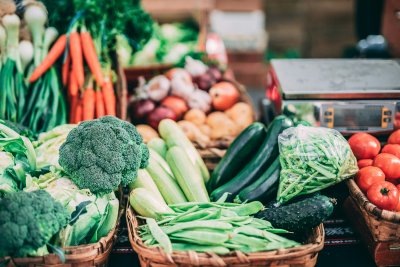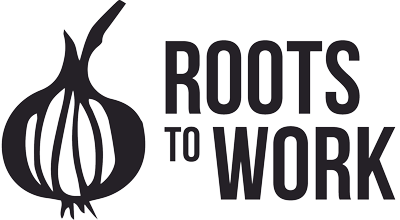
During Neurodiversity Celebration Week 2024 Sustain hosted a webinar on neurodiversity, disability and inclusion in food projects and beyond. Facilitated by NOW Group, an organisation with years of experience in this field, it covered an overview of inclusion and disability before focusing on relationships between neurodiversity and food.
When talking about food access there is often a focus on income, ethnicity and geography. When disability is discussed, the focus is usually limited to physical access. Neurodiversity is often missing from the picture, despite 1 in 7 people (more than 15% of the UK population) being neurodivergent. The World Health Organisation states that,
“Disability is part of being human. Almost everyone will temporarily or permanently experience disability at some point in their life... A person’s environment has a huge effect on the experience and extent of disability. Inaccessible environments create barriers that often hinder the full and effective participation of persons with disabilities in society on an equal basis with others.”
This is evident when exploring the day-to-day engagement of neurodivergent people across all of society. Neurodiversity is the range of ways that the brain works and interprets information, with most people falling under neurotypical or neurodivergent categories. Neurodivergence includes Attention Deficit Hyperactivity Disorder (ADHD), autism, dyslexia and dyspraxia, dyscalculia, Tourette’s Syndrome and many other conditions. These can affect how people engage in the workplace and community, as organisations and community spaces are not always designed with diverse needs in mind, creating unnecessary obstacles for people.
Inclusive language is always important. Where possible, the most appropriate language to use about a person is the language that person uses to describe themselves; for example, while some people may describe themselves as being autistic, others may prefer to say they have autism. Avoid using outdated or offensive language or making unhelpful generalisations such as ‘everyone is on the spectrum’ or ‘I’m a bit ADHD’ – this is invalidating of the experiences of people who are neurodiverse.
While there will be common traits across people with the same neurodivergence, there is no ‘one size fits all’ approach and a practice of attentiveness to and communication around individual needs is best.
The value of inclusion goes beyond our social commitment to looking after one another. The beauty of diversity is that people have unique strengths, skills and perspectives to offer, gifts which are lost when people are excluded - to the detriment of the wider community. This is certainly the case, and is often a cliché, when it comes to neurodiversity – many neurodivergent individuals are creative, visual and systemic thinkers, have sharp attention to detail and deep understanding of certain subjects, have high levels of empathy and emotional intelligence, and compassion borne out of lived experience of exclusion and lack of understanding from others.
This heartwarming YouTube video shows a schoolboy finding out his dyslexia is a superpower not just a disability, and highlights the impact of representation when people in successful positions sharing their experiences as neurodiverse individuals.
To be an inclusive organisation that supports neurodiverse staff, clients or community members there must be an opportunity to understand and empower individuals as well as challenge misconceptions. There should be leadership that helps to make people feel comfortable and be able to disclose their neurodivergence whilst confident that they will receive support and reasonable adaptions. In an office this could be using noise cancelling headphones or using a consistent desk rather than hot desking. In a community setting it could be having clear signage and a quiet space. One of the resources created by NOW Group is the JAM card which stands for ‘Just a Minute’ and is a communication tool to share that you are neurodivergent and may just need to take a minute.
Remember that organisational culture is made and requires strategic work, a culture will not change simply by telling people to be inclusive. Active steps include recruitment for diversity, training to promote inclusivity and raise awareness of unconscious bias, embedding inclusivity into policies and procedures, making inclusive languages and events the norm, and demonstrating this through empathetic leadership. Statistics alone are not enough – simply having a diverse workforce does not mean that staff feel a sense of belonging. Awareness itself is not enough; diversity and inclusion should be celebrated, promoted and supported.
It’s important to recognise the barriers that someone with a disability or their families or carers might face when accessing a food service. Is the project in an accessible, quiet space? Are there staff trained to be empathic and patient, and allow extra time if needed? Does the signage work for people that have dyslexia or another communication difficulty?
Food projects should understand how a neurodivergent person might interact with food. This might be around limitations in what someone might eat, where they’re comfortable eating, whether they want to be involved in food preparation, and if the environment feels safe and inclusive for them. For example, if you run community cooking classes you should incorporate strategies that support individuals with a range of accessibility needs. If you are providing food to people, it is important to consider sensory issues people may have related to food, or other factors such as smells, lighting and noise.
It is also pertinent to consider what is known as the Purple Pound; with over 11 million people in the UK having a disability, this represents more than 1 in 5 consumers. Businesses which are not inclusive and don’t consider diverse needs are losing out on customers, with 75% of disabled people and their families walking away from a business due to poor customer service or lack of accessibility, at a cost of £2 billion a year to British businesses.
Taking all of this into consideration can feel like a lot therefore it is worth reflecting on other organisations that do it well already.
Sustain has worked with BrightStore Whitehawk: an affordable food scheme based in a children’s centre in one of the most deprived wards of Brighton and Hove. All BrightStore venues are fully accessible, and they offer a 'quiet shop' to anyone with sensory or access issues just before opening time. Some of their volunteers are neurodivergent or have long term illnesses or disabilities, which enables them to give first hand support and understanding to shoppers and each other. The shop works to ensure they show a diverse range of people in their social media and publicity materials to encourage people from diverse backgrounds to feel welcome.
By recognising and supporting neurodiversity all year round your organisation or food project can be inclusive, welcoming, and relevant to your entire community.
You can find more information and resources on the Neurodiversity Celebration Week website.



